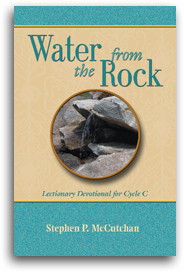SermonStudio
Epiphany 6 / Ordinary Time 6
Devotional
Water From the Rock
Lectionary Devotional for Cycle C
They are like trees planted by streams of water, which yield their fruit in its season, and their leaves do not wither.
-- Psalm 1:3
-- Psalm 1:3


